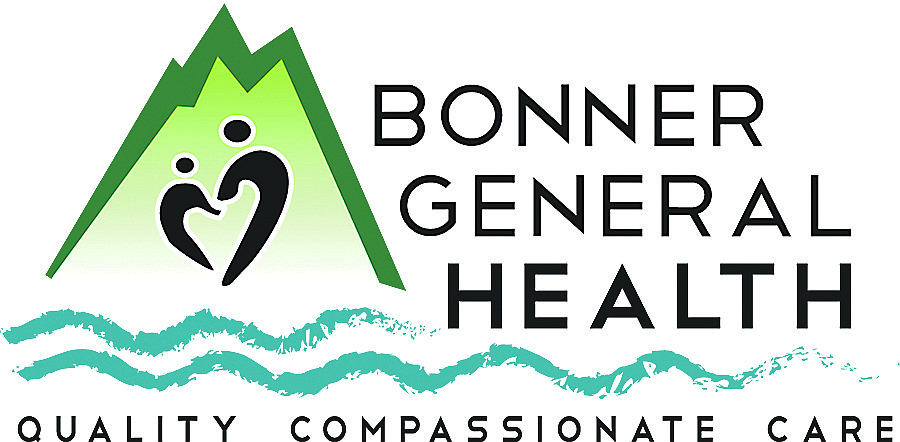Nutrition is critical to health and development
We all know “nutrition” and eating a “nutritious diet” is important. The six major nutrients we get from food are proteins, carbohydrates, lipids (fat), vitamins, minerals, and water. All are essential for our bodies to grow, reproduce, and survive.
I asked Sandra Frank, MS, RDN, LD, CDCES, registered dietitian and diabetes education coordinator at Bonner General Health a slew of questions about nutrition for those of us whose diets aren’t restricted by our weight or health conditions.
KH: What does “healthy diet” mean? SF: A “healthy diet” includes whole foods such as vegetables, fruits, whole grains, lean protein (beans, fish, poultry, eggs, lean meats, nuts), low-fat dairy or calcium sources, and water to meet our nutrient needs. Limit sugar-sweetened beverages, sweets, fried foods, highly processed meats, and refined carbohydrates.
KH: People say, “I’m too busy to cook.” What are some tips to avoid grabbing fast food every day? SF: Start with a goal to make realistic changes. Plan menus, create a grocery list, and cook enough for a few days.
Beans or lean meat, for example, could be used in multiple dishes. Soups or casseroles that freeze well are great options to make in large quantities, portion for another meal including lunches or freeze for later.
If there are multiple people in a household, divide responsibilities as is age-appropriate. Children could stir a salad, add ingredients to a bowl while learning about meal prep, nutrition and family traditions. Working in the kitchen or planning meals together makes eating healthy easier and more fun.
KH: Fast food is cheap and filling. How does one argue with that? SF: Food is expensive! Fast food may be filling; however, the cost to our health is something to consider. Ideas to eat healthy on a budget include:
• Batch cook as discussed above.
• Change the way you think about meat. Use leaner cuts, eat smaller portions, and pair meat with lots of vegetables and a smaller amount of whole grains for a hearty, filling plate.
• Legumes/beans are inexpensive and offer a variety of options to be added in a salad, soup, casserole or as your protein a few days per week.
• Buy fresh produce in season of what you will eat to avoid food spoilage. Use frozen vegetables and berries. Canned foods such as low-sodium canned vegetables, no-added sugar canned fruit, and canned tuna, herring, salmon, sardines are affordable, quick options.
• Grow food, if possible. I have basil and kale growing in the kitchen now and am dreaming of spring and summer to plant even if it’s in a container garden.
• Buying bulk items for whole grains such as oatmeal, brown rice, barley, quinoa, and for nuts are options to save money.
KH: How do we convince people to eat healthier? SF: Know the whys of wanting to make changes or eat healthy. Eat mindfully, nourishing our body, mind, and spirit instead of obsessing over every bite. Once you experience healthy eating and start feeling better, it will help motivate you to continue your journey to lifelong healthy eating. Remember that small steps over time win the race. (I love the tortoise and hare statues at Farmin Park to remind us of this concept.)
KH: We are often told what food/drinks to avoid. What do you say? SF: Moderation is an important nutrition principle.
KH: Caffeine? SF: Three to five 8-ounce cups of coffee provide about 400 milligrams of caffeine. This is the most caffeine recommended per day for healthy adults.
KH: Sugar? SF: Sugar-sweetened coffee/ tea, soda, and energy drinks may give you a short burst of energy only to cause an energy crash. Water or unsweetened tea are great thirst quenchers.
KH: Alcohol? SF: Alcohol in moderation (one drink per day for women and no more than two drinks per day for men and only for adults of legal drinking age). Considerations with alcohol include that it is a source of calories, it may include high sugar mixers, it may replace healthy nutrition, it may cause liver damage, and it may be addicting.
KH: Chocolate? SF: Chocolate with 70% or higher cocoa provides antioxidants, fiber, minerals including iron, copper, and may even be beneficial for cardiovascular health. Eating a higher level of cocoa, say 90%, satisfies the chocolate craving in a small amount.
Kathy Hubbard is a member of the Bonner General Health Foundation Advisory Council. She can be reached at kathyleehubbard@yahoo.com.

